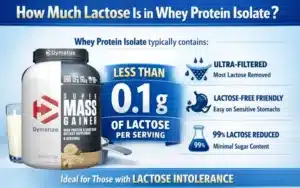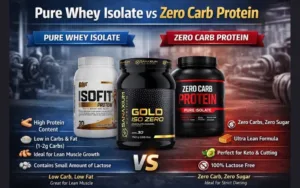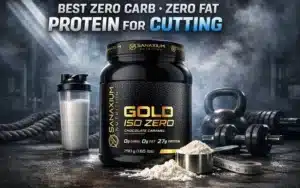No products in the cart.
Return To ShopTestosterone Booster Diet: Foods & Tips for Hormone Health
Testosterone is more than just a hormone; it’s a vital component of overall health, influencing energy levels, muscle growth, mood stability, and even cognitive function. While often associated with male health, it’s also essential for women, albeit at lower levels.
Diet plays an influential role in determining testosterone production and balance, acting as a foundational factor for maintaining optimal levels of this hormone. A testosterone-boosting diet isn’t just about specific foods but also involves a holistic approach, ensuring that the body has the right building blocks to sustain healthy hormone levels naturally.

Key Nutrients for Testosterone Production
- To support the production of testosterone, specific nutrients are indispensable.
- Zinc and magnesium are among the most critical, aiding directly in testosterone synthesis. Vitamin D, often overlooked, functions almost like a hormone in the body, significantly influencing testosterone levels.
- Healthy fats, especially monounsaturated and omega-3 fatty acids, are equally essential, providing the raw materials needed for hormone production.
- Finally, proteins help in muscle repair and recovery, a process that indirectly supports testosterone levels by enabling physical resilience.
- Each of these nutrients plays a synergistic role, underscoring the importance of a balanced, nutrient-rich diet.
Foods That Naturally Boost Testosterone Levels
Certain foods are known for their testosterone-boosting properties due to their rich nutrient profiles.
- Eggs, especially the yolk, provide cholesterol, a necessary precursor for testosterone.
- Fatty fish like salmon and sardines offer omega-3 fatty acids, while lean meats and poultry contribute high-quality protein and zinc.
- Spinach and leafy greens are excellent sources of magnesium, and nuts such as almonds provide a host of beneficial fats.
Incorporating these foods creates a nutrient-dense diet that supports testosterone synthesis and overall hormonal balance, ensuring the body functions at its best.
Foods to Avoid for Optimal Hormonal Health
Just as there are foods that support testosterone production, there are also foods that can hinder it. Processed foods, rich in trans fats and refined sugars, can disrupt hormonal balance and lead to insulin resistance, which indirectly affects testosterone.
Alcohol, particularly in excess, can lead to decreased testosterone levels. Soy products, while healthy in moderation, contain phytoestrogens that may interfere with testosterone levels if consumed in high amounts.
Additionally, processed grains and excessive sugar intake can lead to spikes in insulin and inflammation, further complicating hormonal health. Avoiding or limiting these foods can create a more conducive environment for testosterone production.
Lifestyle Factors That Enhance a Testosterone-Boosting Diet
Diet alone may not be enough to sustain optimal testosterone levels. Regular exercise, especially strength training and high-intensity interval training (HIIT), can significantly boost testosterone production.
Quality sleep is another essential factor; studies show that lack of sleep or poor-quality rest can lead to a substantial dip in testosterone levels. Managing stress is equally crucial, as chronic stress leads to elevated cortisol levels, which can directly inhibit testosterone production.
Adopting a holistic approach that combines a testosterone-boosting diet with these lifestyle factors can amplify results and lead to lasting benefits.
Sample Meal Plan for a Testosterone-Boosting Diet
To put theory into practice, a sample meal plan can serve as a guide.
- Breakfast might include eggs and avocado on whole-grain toast, providing fats and protein.
- Lunch could be a spinach and quinoa salad with grilled chicken, offering magnesium, protein, and zinc.
- For dinner, a salmon fillet with roasted sweet potatoes and a side of leafy greens rounds out the day with omega-3s and essential minerals.
- Snacks like mixed nuts or Greek yogurt provide additional nutrients without compromising testosterone production.
By following a balanced meal plan like this, one can ensure a steady supply of testosterone-supporting nutrients throughout the day.
Conclusion
Achieving and maintaining optimal testosterone levels through diet requires commitment and mindfulness. The benefits, however, are well worth it: sustained energy, improved mental focus, and an enhanced sense of well-being.
By incorporating testosterone-friendly foods, avoiding those that hinder hormonal balance, and embracing a holistic approach to lifestyle, one can create an environment that nurtures hormonal health naturally. This isn’t about a quick fix but rather a long-term commitment to supporting the body’s natural processes, leading to a more vibrant, balanced life.









Add comment